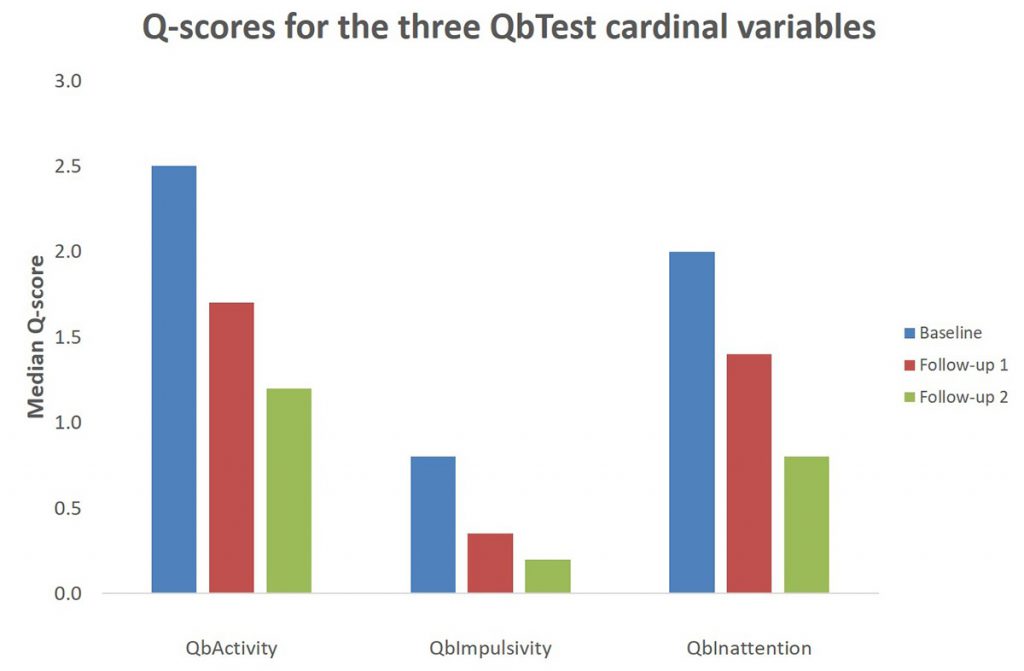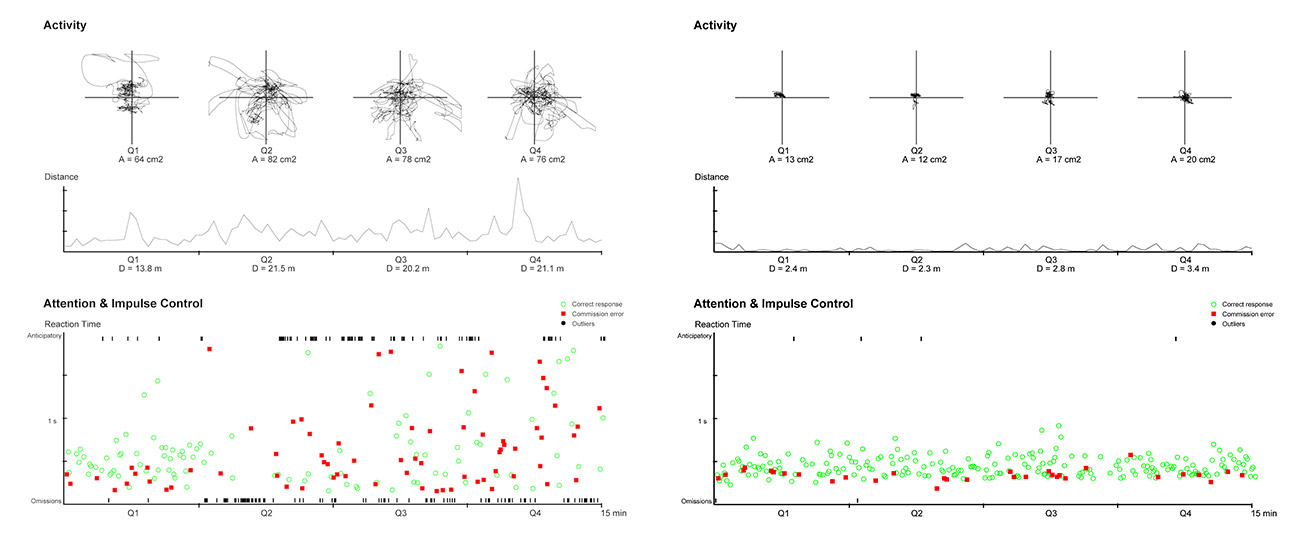Treatment optimization for ADHD
Traditionally, treatment optimization for ADHD is managed by gathering feedback from the patients and their families. When treatment is first prescribed, clinicians usually investigate any social, medical, or psychological aspects that might impact the effectiveness of treatment through rating scales and clinical interviews [1][2].
What is needed is a systematic evaluation of each treatment choice, whether medical, behavioral, nutritional . One well-established approach that supports clinicians is the use of objective data from QbTest on Attention, Hyperactivity, and Impulsivity. Used at baseline and at each stage of treatment, allows clinicians to clearly see changes in the core symptoms over time (both positive and negative).
Clinicians use QbTest in this way to make sure their patients’ treatment is the best possible. This is especially useful for non-responders or partial responders, where a different treatment might be the way forward.
In a study by Vogt & Williams (2011) the objective was to identify responders to methylphenidate. 44 children and adolescents aged 7-18 years with confirmed hyperkinetic disorders were included in the study. All participants performed a QbTest before and after a test dose of methylphenidate
A robust treatment response was confirmed in 84% of the patients. 7% demonstrated a partial response and 9% were determined as non- responders due to deteriorating activity measures together with no improvement in attention and impulse control measures. The authors concluded that objective measures are effective in the early identification of treatment response to stimulant medication [3].
Using QbTest, alongside other clinical data, means clinicians can have meaningful conversations with patients, to assist in making informed decisions regarding changes in treatment. It should also be remembered that medical treatment should not be a substitute to other treatments available, such as psychoeducation, behavioural therapy, or cognitive aids.
Carolina Attention Specialists in Greensboro and Charlotte in NC, a leading specialty medical practice for ADHD for children and adults, is one such clinic using QbTest to monitor treatment response to enable them to make informed decisions regarding medication. They have achieved significant reduction in symptoms on all three ADHD domains for their patients at first treatment follow up. For those patients not optimized, further treatment adjustments proved effective at second follow up. More importantly, the objective data from QbTest enabled them to identify those who were non-responsive.
Taken together, by using QbTest symptom data alongside with other clinical data, the benefits of ADHD treatment are more likely to be realized.

Source: Carolina Attention Specialists, n = 262. [4]
[1] Läkemedelsbehandling av adhd hos barn och vuxna Stöd för beslut om behandling. (n.d.). [online] Available at: https://www.socialstyrelsen.se/globalassets/sharepoint-dokument/artikelkatalog/ovrigt/2015-4-14.pdf [Accessed 4 Nov. 2020].
[2] psykiatristod.se. (n.d.). Behandling och insatser. [online] Available at: https://psykiatristod.se/regionala-vardprogram/adhd/behandling-och-insatser [Accessed 4 Nov. 2020].
[3] Vogt, C., & Williams, T. (2011). Early identification of stimulant treatment responders, partial responders and non-responders using objective measures in children and adolescents with hyperkinetic disorder. Child And Adolescent Mental Health, 16(3),144-149. doi: 10.1111/j.1475- 3588.2010.00593x
[4]. Carolina Attention Specialists (2018) Q-scores for the three QbTest cardinal variables. Data on file.

